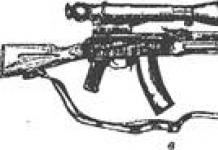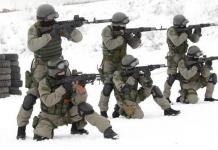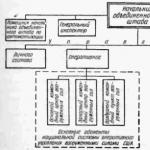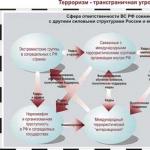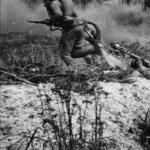After the end of classes, the pupils of the bursa played games in a large, mud-filled room of the educational institution.
A few days ago, the "period of education" ended, which was the passage of the entire scientific course. It was attended by students of all ages. Now there is a "great age law" - this is the release of students from school, a certain age, when he is able to become a novice, sexton or, for example, a scribe. Nobody wants to become a soldier.
One class has about a hundred students of different age categories available. Every game, be it "pebbles" or "lean," hurts from punches, pinches, and snaps. No one wants to take Semenov, a sixteen-year-old boy, the son of a priest, into the game. Each of the students knows about the status of Semyonov - he is a fiscal. The class gets dark, and the students begin to sing, play "little heap", but suddenly calm down. Blows are heard through the darkness - these are the students punishing Semenov, who soon runs to complain.
At the classes that have just begun, someone is trying to sleep, someone is trying to talk. The whole point of studying is cramming, “driving” material into the heads of the students, and therefore no one studies. Semyonov enters the classroom, who had previously complained about the offenders and the inspector. One offender, who was pointed out by the fiscal, is flogged by order of the inspector, and they also promise to flog every tenth the next morning. The Bursaks immediately decide to take cruel revenge on Semyonov and at night they insert a burning cracker in the form of a cone into his nose, as a result of which the fiscal ends up in the infirmary, without even suspecting why. By order of the authorities, the Bursaks are flogged, some even in vain.
Early in the morning in the bursatskaya bedroom they start waking everyone up and taking them to bathe. The students, quarreling with passers-by, go in a noisy crowd through the whole city. After bathing, they disperse around the city, sniffing out what they can steal. This is especially true for students with the nickname Satan and Aksyuta. Having stolen some food, the Bursaks ate and with a cheerful mood share memories of their tricks among themselves...
At the beginning of classes, the teacher Lobov Ivan Mikhailovich scolds the bursak Aksyuta, who did not learn the lesson. Then Lobov starts scolding everyone else. He never explains the topics of the lesson, he has breakfast at the lesson. Then Latin begins, the teacher of which is Dolbezhin. Unlike Lobov, he does not take bribes, although he also does not leave anyone unattended and constantly asks, but he is loved by his students. Another teacher, whose last name is Batka, likes to drink, and therefore is very angry when drunk. Old Man is prone to other physical punishments, except for spanking.
Aksyutka remains hungry because Lobov forbade giving him lunch, because of his bad attitude towards studies. This student is extremely fickle: sometimes he studies while sitting in front of the teacher, sometimes he does not study at all. Lobov cannot stand such an attitude.
Two women appear in the school - one old and one thirty years old, waiting for the director, and upon his arrival, they throw themselves at the man's feet. As it turns out, it was the “fixed bride” with her mother who came for the “grooms”. After the death of a clergyman, his place is "assigned" to the family, it is given to a person who agreed to marry his daughter. The clerk and her daughter came to the bursa for this purpose.
New teachers appear in the bursa, among them Krasnov Petr Fedorovich. This is a kind, delicate person who opposes cruel punishments, but it is he who greatly abuses moral punishments, mocking disobedient students in front of the class.
Aksyutka, together with Satan, steals bread from the Bursatian bread-cutter Tsepka, who, as a result of this, enraged, runs after the cunning Bursak. The attendant of the bursa calls potential "grooms" to examine the bride. The authorities talk about the suitability of Vasenda, Azinus and Aksyutka as suitors. The first two - the inhabitants of "Kamchatka", are engaged exclusively in church teachings. Wasenda - practical, serious, Azinus - careless, stupid. Bursaks go to the bride. Vasenda refuses the bride - she did not please him; Azinus decides to marry, despite the age of the bride. Aksyuta called himself a groom only to eat well and steal something.
In the meantime, a parody of a wedding is being planned in the bursa...
As a child, Karas dreamed of bursas, because his older brothers were once bursaks, and now they were putting on airs in front of him. A novice crucian gets into a bursa without restraining his emotions, but immediately receives a lot of ridicule and bullying from the students. On the first day he is whipped. Karas gets into the seminary choir, but instead of singing, he only opens his mouth. The Bursaks call him Karasem, while holding a certain ceremony of “reproaching”. Karas enters into a fight with his offenders, Lobov comes in, catches this scene and whips Karas. Karas' life breaks - he begins to hate Bursa and dreams of revenge.
Bursak Silych, the hero of the class, speaks of his patronage and protection over Karas, so that no one can offend him. Karashu becomes much easier to live. He personally tries to protect the "oppressed" fools, and Karas denies science and does not want to study at all.
Razumnikov Vsevolod Vasilyevich, a teacher of singing, the law of God and history, is an extremely progressive teacher: he opens up a system of mutual science. However, Karas is not given church singing, as a result of which Razumnikov seriously punishes him, not letting him go home for the weekend. Karas is afraid that he will not get home for Easter. The teacher of arithmetic, Livanov Pavel Alekseevich, comes in, very drunk, the students mock the teacher.
On Saturday morning, Karas is outrageous out of annoyance that he was not allowed to go home. Sunday is coming, Karas is thinking about escaping from the bursa. He had previously heard of someone escaping. On that day, the captured Menshinsky is returned, and then they are whipped and taken to the hospital. The crucian forgets about the escape and decides to "escape" from singing in the infirmary. He falls ill, singing passes without Karas, and he is sent home for Easter ...
A new caretaker comes to the bursa. Before him was the Astrologer, a kind man who liked to retire to his dwelling and could not bear the nightmare of bursa. The Bursaks saw in him some kind of mystery. Much has changed in the bursa, punishments have been mitigated, there are much fewer age-old bursaks...
Please note that this is only a summary of the literary work "Essays of Bursa". This summary omits many important points and quotations.
Huge dirty school room. Classes are over, and the students are having fun with games.
Quite recently, the "period of forced education" ended, when everyone, regardless of age, had to take a full course of science. Now the “law of great age” has begun to operate - upon reaching a certain age, a student is expelled from school, and he can become a scribe, deacon, or novice. Many cannot find a place for themselves. There are rumors that such people will be taken as soldiers.
There are over a hundred people in the class. Among them are twelve-year-old children and adults. They play "pebbles", "shvychki", "lean", "fast". All games are necessarily associated with causing each other pain: pinching, clicking, hitting, and so on.
Nobody wants to play with Semyonov, a sixteen-year-old boy, the son of a parish priest. Everyone knows that Semyonov is a fiscal. It gets dark in the classroom. The Bursaks amuse themselves by singing, arrange noisy games in the "small pile", but suddenly everything subsides. In the darkness you can hear: someone is being whipped. It is the comrades who are punishing the fiscal Semyonov. An embittered Semyonov runs to complain.
Classes begin. Someone is sleeping, someone is talking... The main method of student learning is meaningless "dumming", cramming. Therefore, no one wants to learn.
An inspector and Semyonov appear in the classroom, complaining about their offenders. One of them, on the orders of the inspector, is flogged and they promise to flog every tenth student the next day. The Bursaks decide to take revenge on Semyonov. At night, they insert “pfimfu”, that is, a cone with burning cotton, into his nose. Semyonov ends up in the hospital, and he himself does not know what happened to him. By order of the authorities, many are flogged, and many in vain.
Early morning. Bursatskaya bedroom. Students are awakened and taken to the bath. They go through the city with noise, quarreling with all passers-by. After the bath, they scatter around the city in search of what is bad. Particularly distinguished are the Bursaks, nicknamed Aksyuta and Satan. Having eaten stolen food, the Bursaks are in a good mood and tell each other stories about the old times of the Bursa: about the tricks of the Bursaks, about how they used to flog ...
Classes begin. Teacher Ivan Mikhailovich Lobov first flogs Aksyuta, who did not learn the lesson, then asks others, distributing punishments. During class, he eats breakfast. Lobov never explains the lesson. The next lesson - Latin - is taught by the teacher Dolbezhin. He also flogs everyone in a row, but his students love: Dol-bezhin is honest, does not take bribes and does not favor fiscals. The third teacher, nicknamed Old Man, is especially ferocious when drunk: along with whipping, he also uses other, more sophisticated physical punishments.
Aksyutka is hungry: Lobov ordered to leave him without lunch until he moves to Kamchatka. Aksyutka either studies well and sits at the first desk, or she doesn’t study at all. Lobov is tired of such changes: he prefers that Aksyutka never study.
In the courtyard of the school, two women - an old woman and a thirty-year-old woman - are waiting for the director and throw themselves at his feet. It turns out that this is a “fixed bride” with her mother, who came “for the grooms”. The fact is that after the death of a clergyman, his place is “assigned” to the family, that is, it passes to the one who agrees to marry his daughter. The clerk and her daughter have to go to the bursa to find a "breadwinner".
A new type of teacher is emerging in the bursa. Among them, Petr Fedorovich Krasnov. He, in comparison with others, is a kind and delicate person, opposes too cruel punishments, however, he abuses moral punishments, mocking ignorant students in front of the whole class.
Aksyutka, together with another student nicknamed Satan, manages to steal bread from the Bursat baker Tsepka. Aksyutka infuriates Tsepka, he chases after the impudent student, while Satan steals bread.
The attendant calls the grooms - to look at the bride. The authorities recognize Vasenda, Azinus, Aksyutka as fit suitors. The first two are the inhabitants of "Kamchatka", who are engaged only in ecclesiastical sciences. Vasenda is a practical, solid person, Azinus is a stupid, careless person. Bursaks go to the bride. Vasenda does not like both the bride and the place, but Azinus decides to marry, although the bride is much older than him. Aksyutka simply called himself a groom to eat from the bride and steal something.
And in the bursa they start a new game - a parody of a wedding ...
Karas from early childhood dreamed of a bursa, for his older brothers were bursaks and were very proud of him. When a novice Karas is brought to the bursa, he rejoices. But ridicule, various bullying from his comrades immediately poured on him. On the first day he is whipped. Karas enters the seminary choir. Instead of singing, he only tries to open his mouth. The comrades “christen” him Karas, the ceremony of “reproaching” is very offensive, Karas fights with offenders, and Lobov, who caught the fight scene, orders Karas to be whipped. This cruel flogging produces a fracture in the soul of Karas - a terrible hatred for the bursa appears, dreams of revenge.
A student nicknamed Silych, the first hero of the class, declares that he will patronize Karas so that no one dares to offend him. Under this protection Karashu becomes easier to live. He himself tries to protect the "oppressed", especially the bursat fools. Karas resolutely denies the Bursak science, does not want to study.
Vsevolod Vasilyevich Razumnikov, a teacher of church singing, the law of God and sacred history, is a rather progressive teacher: he introduces a system of mutual teaching. But Karas cannot comprehend church singing, and Razumnikov punishes him: he does not let him go home on Sundays. The danger hangs over Karas that they will not let him go home for Easter.
Arithmetic teacher Pavel Alekseevich Livanov arrives. He is helpless when drunk, and the Bursaks mock him.
On Saturday, Karas does all sorts of outrages out of annoyance that he is not allowed to go home. Sunday passes in the bursa, and Karas begins to think about escaping. He heard that some of the younger "runners" were caught, but forgiven, others were flogged, but still they did not notice that the fugitives were "rescued" somewhere in the wood yard. But on the same day they bring the captured "runner" Menshinsky. He is whipped half to death, and then taken to the hospital on a matting. Crucian leaves thoughts of flight. He decides to "escape" from church singing in the hospital. He manages to get sick, the terrible lesson passes without him, and on Easter Karas is sent home...
A new caretaker appears in the bursa. The former, nicknamed the Astrologer, was a kind man and, unable to endure the horrors of the Bursa, preferred to retire in his apartment, which gave him great mystery in the eyes of the Bursaks. In general, by that time, a lot had changed in the bursa: punishments were mitigated, there were fewer overgrown bursaks ...
retold
- Category: Summary
Huge dirty school room. Classes are over, and the students are having fun with games.
Quite recently, the "period of forced education" ended, when everyone, regardless of age, had to take a full course of science. Now the “law of great age” has begun to operate - upon reaching a certain age, a student is expelled from school, and he can become a scribe, deacon, or novice. Many cannot find a place for themselves. There are rumors that such people will be taken as soldiers.
There are over a hundred people in the class. Among them are twelve-year-old children and adults. They play "pebbles", "shvychki", "lean", "fast". All games are necessarily associated with causing each other pain: pinching, clicking, hitting, and so on.
Nobody wants to play with Semyonov, a sixteen-year-old boy, the son of a parish priest. Everyone knows that Semyonov is a fiscal. It gets dark in the classroom. The Bursaks amuse themselves by singing, arrange noisy games in the "small pile", but suddenly everything subsides. In the darkness you can hear: someone is being whipped. It is the comrades who are punishing the fiscal Semyonov. An embittered Semyonov runs to complain.
Classes begin. Someone is sleeping, someone is talking ... The main method of studying for students is meaningless "dumbing", cramming. so no one wants to study.
An inspector and Semyonov appear in the classroom, complaining about their offenders. One of them, on the orders of the inspector, is flogged and they promise to flog every tenth student the next day. The Bursaks decide to take revenge on Semyonov. At night, they insert “pfimfu”, that is, a cone with burning cotton, into his nose. Semyonov ends up in the hospital, and he himself does not know what happened to him. By order of the authorities, many are flogged, and many in vain.
Early morning. Bursatskaya bedroom. Students are awakened and taken to the bath. They go through the city with noise, quarreling with all passers-by. After the bath, they scatter around the city in search of what is bad. Particularly distinguished are the Bursaks, nicknamed Aksyu-ta and Satan. Having eaten stolen food, the Bursaks are in a good mood and tell each other stories about the old times of the Bursa: about the tricks of the Bursaks, about how they used to flog ...
Classes begin. Teacher Ivan Mikhailovich Lobov first flogs Aksyuta, who did not learn the lesson, then asks the others, distributing punishments. During class, he eats breakfast. Lobov never explains the lesson. The next lesson - Latin - is taught by the teacher Dolbezhin. He also flogs everyone in a row, but his students love: Dol-bezhin is honest, does not take bribes and does not favor fiscals. The third teacher, nicknamed Old Man, is especially ferocious when drunk: along with whipping, he also uses other, more sophisticated physical punishments.
Aksyutka is hungry: Lobov ordered to leave him without lunch until he moves to Kamchatka. Aksyutka either studies well and sits at the first desk, or she doesn’t study at all. Lobov is tired of such changes: he prefers that Aksyutka never study.
In the courtyard of the school, two women - an old woman and a thirty-year-old woman - are waiting for the director and throw themselves at his feet. It turns out that this is a "fixed bride" with her mother, who came "for the grooms." The fact is that after the death of a clergyman, his place is “assigned” to the family, that is, it passes to the one who agrees to marry his daughter. The clerk and her daughter have to go to the bursa to find a "breadwinner".
A new type of teacher is emerging in the bursa. Among them, Petr Fedorovich Krasnov. He, in comparison with others, is a kind and delicate person, opposes too cruel punishments, however, he abuses moral punishments, mocking ignorant students in front of the whole class.
Aksyutka, together with another student nicknamed Satan, manages to steal bread from the Bursat baker Tsepka. Aksyutka infuriates Tsepka, he chases after the impudent student, while Satan steals bread.
The attendant calls the grooms - to look at the bride. The authorities recognize Vasenda, Azinus, Aksyutka as fit suitors. The first two are the inhabitants of "Kamchatka", who are engaged only in ecclesiastical sciences. Vasenda is a practical, solid person, Azinus is a stupid, careless person. Bursaks go to the bride. Vasenda does not like both the bride and the place, but Azinus decides to marry, although the bride is much older than him. Aksyutka simply called himself a groom to eat from the bride and steal something.
And in the bursa they are starting a new game - a parody of a wedding ...
Karas from early childhood dreamed of a bursa, for his older brothers were bursaks and were very proud of him. When a novice Karas is brought to the bursa, he rejoices. But ridicule, various bullying from his comrades immediately poured on him. On the first day he is whipped. Karas enters the seminary choir. Instead of singing, he only tries to open his mouth. The comrades “name” him Karas, the ceremony of “reproaching” is very offensive, Karas fights with the offenders, and Lobov, who caught the fight scene, orders Karas to be whipped. This cruel flogging produces a fracture in the soul of Karas - a terrible hatred for the bursa appears, dreams of revenge.
A student nicknamed Silych, the first hero of the class, declares that he will patronize Karas so that no one dares to offend him. Under this protection Karashu becomes easier to live. He himself tries to defend the "oppressed", especially the bursat fools. Karas resolutely denies the Bursak science, does not want to study.
Vsevolod Vasilyevich Razumnikov, a teacher of church singing, the law of God and sacred history, is a rather progressive teacher: he introduces a system of mutual teaching. But Karas cannot comprehend church singing, and Razumnikov punishes him: he does not let him go home on Sundays. The danger hangs over Karas that he will not be allowed to go home for Easter.
Arithmetic teacher Pavel Alekseevich Livanov arrives. He is helpless when drunk, and the Bursaks mock him.
On Saturday, Karas does all sorts of outrages out of annoyance that he is not allowed to go home. Sunday passes in the bursa, and Karas begins to think about escaping. He heard that some of the younger "runners" were caught, but forgiven, others were flogged, but still they did not notice that the fugitives were "rescued" somewhere in the wood yard. But on the same day they bring the captured "runner" Menshinsky. He is whipped half to death, and then taken to the hospital on a matting. Crucian leaves thoughts of flight. He decides to "escape" from church singing in the hospital. He manages to get sick, the terrible lesson passes without him, and on Easter Karas is sent home ...
A new caretaker appears in the bursa. The former, nicknamed the Astrologer, was a kind man and, unable to endure the horrors of the Bursa, preferred to retire to his apartment, which gave him great mystery in the eyes of the Bursaks. In general, by this time, a lot had changed in the bursa: the punishments were mitigated, there were fewer overgrown bursaks ...
Essays on bursa
Huge dirty school room. Classes are over, and the students are having fun with games.
Quite recently, the "period of forced education" ended, when everyone, regardless of age, had to take a full course of science. Now the "law of great age" has begun to operate - upon reaching a certain age, a student is expelled from school, and he can become a clerk, sexton, or novice. Many cannot find a place for themselves. There are rumors that such people will be taken as soldiers.
There are over a hundred people in the class.
Among them are twelve-year-old children and adults. They play "pebbles", "shvychki", "lean", "fast". All games are necessarily associated with causing each other pain: pinching, clicking, hitting, and so on.
Nobody wants to play with Semyonov, a sixteen-year-old boy, the son of a parish priest. Everyone knows that Semyonov is a fiscal. It gets dark in the classroom. Bursaks amuse themselves with singing, arrange noisy games in the "small pile", but suddenly everything subsides. In the darkness you can hear: someone is being whipped. It is the comrades who are punishing the fiscal Semyonov. An embittered Semyonov runs to complain.
Classes begin. Someone is sleeping, someone is talking... The main method of student learning is meaningless "dumming", cramming. LEARN therefore no one wants.
An inspector and Semyonov appear in the classroom, complaining about their offenders. One of them, on the orders of the inspector, is flogged and they promise to flog every tenth student the next day. The Bursaks decide to take revenge on Semyonov. At night, they insert a “pfimfu”, that is, a cone with burning cotton, into his nose. Semyonov ends up in the hospital, and he himself does not know what happened to him. By order of the authorities, many are flogged, and m ....
Nikolai Gerasimovich Pomyalovsky (1835-1863) - Russian writer and prose writer. Known to his contemporaries as the author of realistic stories, he is considered to continue the traditions of the truly great N.V. Gogol.
Biography
Pomyalovsky was born on April 11, 1835 in the family of a deacon. His father served in St. Petersburg at the cemetery Malookhtinskaya Church. In the biography of Nikolai Pomyalovsky, the family played a big role. The father, who was distinguished by good nature, brought up children with gentle advice and suggestions. It was thanks to this that Nikolai quickly became independent in his thoughts and actions. One of his first comrades in childhood were Okhten fishermen. The boy spent a lot of time with them and had long conversations. The nearby cemetery, which made a negative impression with its gloomy pictures, also had its influence on the smart and lively Kolya. This was the main reason for the formation of the gloomy-skeptical nature of the future writer.
When his son was 8 years old, his father assigned him to the Alexander Nevsky Theological School for living and studying at public expense - "bursa". Here the future writer stayed until 1851. The manners and life of the school were subsequently displayed by him in the famous “Essays of the Bursa”.
After college, Pomyalovsky completed a full course of study at the St. Petersburg Theological Seminary, which he graduated in 1857. While waiting for a place in the church, he buried the dead and sang at Sunday services. In the same period, Pomyalovsky began to educate himself, and was a free student at St. Petersburg University.
During this study, he embarked on literary creativity, taking part in the creation of the handwritten journal "Seminarsky List". In one of these publications, the beginning of the story "Makhilov" written by Pomyalovsky was published. Several of his articles were also published in these journals. Since 1861, the writer began to publish his works in Sovremennik. Here from 1862 to 1863. Pomyalovsky's Essays on the Bursa were also published. They could also be read in the Vremya magazine.
famous work
Pomyalovsky gained his fame thanks to the Essays of the Bursa. This talented work illuminated a modest and at the same time a very dark corner of the life of Russia, where until that period not a single representative of a cultural society had thought to look. Anyone who undertook to read Pomyalovsky's Essays on the Bursa learned with horror that in the very center of the Northern capital there is life that strikes with its inhuman cruelty and aimlessness.

The work "Essays of the Bursa", which was a huge success, was able to make a fairly strong impression on society and ensured great popularity for the author. After its publication, Pomyalovsky conceived the novel Brother and Sister. However, there was a period of political reaction. The Russian government closed all Sunday schools, arrested Chernyshevsky, and suspended the publication of Sovremennik. Such events literally shocked the writer. However, he found the strength in himself not to stop working on the continuation of Bursa Essays, as well as on the novel Brother and Sister, having conceived a new work, Vacation. But in September 1863, Nikolai Gerasimovich fell ill, and on October 17 he died of gangrene.
Writer's worldview
N. G. Pomyalovsky was close to the ideas of the revolutionary democrats. Their influence can explain his sharply negative attitude towards any manifestation of noble culture, as well as towards bourgeois hoarding.

As one of the parts of the hated social system, Pomyalovsky depicted the bursa in his essays, showing it as a sphere that corrupts and kills the individual. In these essays, the reader can find many rather harsh words about the church and about religion that cover violence and abuse.
Realism of the work
Bursak images existed in literature even before Pomyalovsky. However, they were, as a rule, virtuous, cheerful and clean students of the seminary. They had nothing in common with those heroes who were described in Pomyalovsky's Essays on the Bursa. That is why critics greeted the revolutionary-democratic work with hostility. Many of them believed that the hopeless and gloomy paintings described by Nikolai Gerasimovich were far beyond art. However, other voices were heard at the same time, which claimed that not a single word of untruth was said in Pomyalovsky's Essays on the Bursa.
Today, according to documentary evidence, we can make an unambiguous conclusion that the "Essays of the Bursa" by N. G. Pomyalovsky provide a correct general coverage of the situation that took place in the theological seminaries of that time.
About poetics
"Essays on the Bursa" by Nikolai Pomyalovsky were written using autobiographical material. In this work, which stands out for its artistic expressiveness and power, the reader is invited to familiarize himself with colorful images. These are the Bursaks and their teachers, living in the world of inertia and stagnation that existed at that time in theological schools.
High school students can use "Essays on Bursa" by Nikolai Pomyalovsky for the "Live Classics" competition. After all, this work is interesting not only in cognitive terms. It is a clear contrast to those memories of childhood that can be read in the writers of the nobility. There are no bright or good feelings in Pomyalovsky's Essays on the Bursa. In them, the reader sees only bitterness and anger about the ruined childhood and youth, as well as about spiritually crippled people.
Plot construction
What is characteristic of Nikolai Pomyalovsky's Essays on Bursa? They do not have a single cognitive-developing plot. There is no main character in this work. N. G. Pomyalovsky’s “Essays on the Bursa” are separate sketches, as well as brilliantly constructed scenes, dialogues and everyday details. All this allows the author to create a rather expressive whole picture. It does not have the external literary "smoothness", which makes a strong impression on people.

To those who have begun to read Pomyalovsky's Essays on the Bursa, the realism of the depicted becomes obvious. At the same time, it is also emphasized by the peculiar language that the writer used to write his essays. These are forms of vernacular, and Bursat jargon, and church-book speech.
Writer innovation
The entire biography of Nikolai Gerasimovich Pomyalovsky clearly indicates that he belongs to a galaxy of those artists who did not look for beaten paths in art. He was a true experimenter and innovator. Critics note that the genre forms of the works he created are characteristic of the literature of the 60s of the 19th century, while expressing typical art trends that were characteristic of that era.
An analysis of Pomyalovsky's work "Essays on the Bursa" clearly indicates that this writer is one of the artists who most clearly expressed the features of revolutionary democratic prose, which was influenced by the ideas that swept society at that time. The genre of "Sketches of the Bursa" was a clear confirmation of the maturity that realistic literature had reached.
Writer's idea
Over the course of two years (1862-63), four parts of the Bursa Essays were published. The fifth, unfinished, readers saw after the death of the author. Initially, Pomyalovsky conceived 20 essays. In them, he wanted to tell with all the details about the life that takes place in theological schools.
Even when considering the summary of Pomyalovsky's Essays on the Bursa chapter by chapter, it becomes clear that this work is not at all a photograph of reality. Each of the plots of the author is an integral part of the autobiographical story.
Let's get acquainted with the brief content of Pomyalovsky's Essays on the Bursa.
Winter evening
The period characterized by "violent education" has already ended. This is when all students, regardless of their age, were required to study the program of the full course of science. But that is already in the past. Now the time has come for the "Law of Great Growth". What does it mean? Bursak, who has reached a certain age, is expelled from school. In this case, a young man can become either a scribe, or a deacon, or a novice. At the same time, the Bursaks are worried about rumors that some of them may be taken as soldiers.
There are over 100 students in the classroom. Among them there are both adults and children of 12 years old. All of them play "fast", "lean", "shvychki" and "pebbles". Such pastimes are bound to involve the infliction of pain through blows, pinches, clicks, and so on.

However, no one wants to play with Semenov. This is a 16-year-old boy, the son of a parish priest. All the students know that Semyonov is a fiscal.
The classroom starts to get dark. Pupils have fun with noisy games, singing, huddle together. However, suddenly everything stops. Frightening sounds are heard in the darkness. Someone is being whipped. It turns out that it is the students who are punishing Semyonov. He, embittered, runs away to complain.
The inspector enters the class together with Semyonov, who complained to him about his offenders. One of them is immediately whipped. At the same time, the inspector promises to punish every tenth student in the same way next time.
Bursaks take revenge on Semyonov. Their punishment is cruel. At night, they insert the fiscal into the nose of a cone containing burning cotton. Semyonov is taken to the hospital. The authorities at the same time orders to flog many students. Some of them are punished in vain.
Bursat types
We continue to get acquainted with the summary of the "Essays of the Bursa". The second part of the work begins with a description of the early morning. The students are awakened and then taken to the bathhouse. Young people walk around the city, swearing at the same time with passers-by. After the bath, they are engaged in theft, looking for those products that are not lying well. Two bursaks are especially distinguished in this, whose nicknames are Satan and Aksyuta. After they ate the stolen goods, they were in a good mood. Returning to the classroom, the students tell each other about what happened at the school in the old days, and how the students used to be flogged.
After the start of classes, the teacher Ivan Mikhailovich Lobov calls Aksyuta, but realizing that he has not learned the lesson, flogs the boy. After that, he starts asking the others. Punishments are distributed in the same way. During the lesson the teacher has breakfast. And the new material does not explain. He never does this.
The Latin teacher, Dolbezhkin, comes to the next lesson. His students love, even though he flogs them all in a row for the slightest offense. However, Dolbezhkin does not take bribes, does not favor fiscals, and is considered honest.
The nickname of the third teacher is Old Man. He is especially ferocious. In addition to spanking, they also use other physical punishments, which are considered more sophisticated.
Bridegrooms of the Bursa
Let's continue to consider Pomyalovsky's Essays on the Bursa (summary). The third part tells about two women who came to the yard of the school. One of them is an old woman, and the second is thirty years old. They wait for the director, and then rush to his feet. It turned out that this is the so-called fixed bride. With her mother, she came "for the groom." The thing is that in Russia of that period there was such a rule that the place of a deceased clergyman goes to the one who agrees to marry his daughter. So women came here to find a "breadwinner" in the bursa.

A new type of teacher appears in the school. One of its representatives is Krasnov Petr Ivanovich. This person is an opponent of cruel physical punishments. However, Krasnov likes to morally mock ignorant students, humiliating them in front of the class.
Aksyutka, together with Satan, steal bread from the Bursatskaya canteen. They do it quite cleverly. Aksyutka infuriates the baker Tsepka, and while he is chasing the impudent boy, Satan commits a theft.
The attendant calls the grooms to the bride's bride. The authorities believe that three are suitable for her. These are Vesenda, Azinus and Aksyutka. The first two of them are engaged only in the sciences of the church direction. At the same time, Vasenda is considered a solid and practical person, and Azinus is considered careless and stupid.
Bursaks are sent to the bride. Vasenda does not like the bride, and Azinus decides to marry her. And this despite the fact that the woman is much older than the boy. Aksyutka simply called himself a groom to eat while in the bride's house and steal something there.
The students are starting a new game. They're doing a parody of a wedding.
Runners and rescued burses
In the summary of Pomyalovsky's Essays on the Bursa for the reader's diary, we further get acquainted with the fourth part of the work. And here the author tells us about Karas. From early childhood, this boy dreamed of becoming a student of the bursa. After all, his older brothers studied here, who were very proud of him. The newcomer crucian, who has just arrived in the bursa, is glad. However, ridicule from his comrades immediately begins to fall on him, and he is subjected to various bullying. Already on the first day, Karas is whipped.
The boy enters the seminary choir. However, there he tries not to sing, but only to open his mouth.
His comrades call him Karasem, while conducting an offensive ceremony. The boy fights with them. Lobov sees this. He orders to flog Karas. After this cruel spanking, a fracture occurs in the boy's soul. He begins to hate the bursa and dreams of revenge.
There is a student in the class named Silych. He is considered the first hero. Silych declares that he becomes the patron of Karas. Since then, no one has offended the boy, and it becomes much easier for him to live. Karas himself tries to stand up for the “oppressed”. This is especially true of the bursat fools. But at the same time, the boy does not want to study at all.
Another progressive teacher at the school is Vsevolod Vasilyevich Razumnikov. He teaches children church singing, the law of God, as well as sacred history. Razumnikov introduces a new system, according to which mutual learning is carried out. However, church singing is not available for Karas. There is no way he can comprehend it. For this, Razumnikov punishes the boy. He doesn't let him home on Sundays. Karas is afraid that he will not be able to leave school for Easter.
The arithmetic teacher came to the lesson. Livanov is drunk and helpless. Bursaks begin to mock him.
On Saturday, when Karas realized that they would not let him go home, he began to do all sorts of outrages out of frustration. And on Sunday, he planned an escape. He had heard before that junior disciples who were caught were forgiven. Some of them were flogged. But on the same day, the captured "runner" Menshinsky was brought to the school. He was flogged half to death, and then taken to the hospital on a matting. The crucian was frightened and gave up thoughts of escaping. From church singing, the guy decided to take refuge in the hospital. He did everything to get sick, and the terrible lesson passed without him. On Easter Karas was allowed to go home.
Bursa transition time
The school has a new superintendent. The person who previously held this position was kind and could not stand the horrors that were happening in the bursa. In order not to see them, the Astrologer sought to retire to his apartment. This gave him a mysteriousness in the eyes of his students. But by this time, many changes had taken place in the bursa. The punishments were mitigated, and there were fewer overage students.
Brief analysis of the work
The advanced public of the 60s of the 19th century. showed a deep interest in the problems of education and upbringing that existed in the country. This was the main reason that Pomyalovsky decided to portray the bursa. The work was written at a time when the already rotten system of serfdom revealed its ulcers in this matter as well.
Nikolai Pomyalovsky presented “Sketches of the Bursa” to the readers' judgment in those days when cruelty, punishment and humiliation of students raged in the Bursa. Moreover, this did not happen at all in the distant Russian outback. The horrors illustrated by the writer were commonplace in the decorous imperial and outwardly brilliant St. Petersburg.

During this period, that is, in the first half of the 19th century, theological schools were among the most widespread educational institutions. However, it is worth noting that the same system and similar customs (sometimes in a somewhat more decent form) were present in gymnasiums, closed institutes and cadet corps.
Practically in each of the theological schools, mechanical and meaningless cramming dominated. The same student who wished to consciously master the subject began to be considered a freethinker. The need for corporal punishment did not cause any doubts among the teachers of that time. Merciless beatings were the main method of influencing students, with the help of which they tried to teach the younger generation the rules of good behavior, religion and morality. Analyzing Pomyalovsky's Essays on the Bursa, one can see that in the first part of the work, everyday and general flogging is not yet observed. In all its scale, it appears before the reader in "Bursat Types".
Physical punishment was a real nightmare of spiritual schools. And, unfortunately, not only them alone. Rods were punished in home, school and national education. But such a method aroused in the pupils only hatred for their teachers and for the authorities. And if, in front of the older students, they behaved more or less calmly, then they secretly “shit”, thus answering for the persecution and punishment.
In addition to the cruelty of education in his work, N.G. Pomyalovsky also raises the problem of personality. It is expressed in the "Essays of the Bursa" in matters of the formation of the child. At the same time, the author points out that in such conditions it is unlikely that a real person will turn out of a student.
Creating the characters of his heroes, Nikolai Gerasimovich tried to find out the influence of the social environment on the fate and personality of the bursak. And in those situations when the writer seeks to show the reader the dialectic of character formation, he sets up artistic experiments. The author emphatically and with all consciousness changes external circumstances. In doing so, he begins his study of the actions that a person performs in a sharply different environment. This is followed by certain conclusions. So, in his essays, Pomyalovsky depicted children whose souls are gradually corrupted by the bursat system of education and science. At the same time, the author removes the blame not only from the students, but also from the teachers. He points to a specific external root cause, which lies in the typical social order. Those senseless and brutal punishments that the bursa was subjected to forced the children to seek salvation by hiding in latrines, running away home or into the forest, and also, deliberately catching a cold, lie down in the hospital.
Describing the bureaucracy that existed in the school, the power of the strong over the weaker, bribery, trickery and despotic violence, the author created a mold of the system that existed in tsarist Russia. So, in the mind of Karas, who was subjected to the oppression of the bursa, thoughts begin to ripen about what is unbearable not only here. It is bad for a person to live in all modern reality. Having drawn up the manners and life of the spiritual school with actual accuracy, Pomyalovsky bitterly speaks out that the same bursa exists in everyone's life. This feature of typification was extremely clear to representatives of the revolutionary democratic movement. In particular, D.I. Pisarev pointed out that he sees in the Essays of the Bursa not only the Russian school, but also other spheres of public life, in particular, the prison.
Pomyalovsky actively condemns the order that existed in the theological school. And this expresses his position as an active raznochintsa. It was diametrically opposed to liberal views.
The pages of Pomyalovsky's work introduced the reader to unusually gloomy, but at the same time, vivid pictures of reality. As a result, the author presents all the students and teachers as victims of church science and the existing system of education. Nevertheless, the author expresses an extremely negative opinion about many teachers. This, for example, is the terrible Old Man, known for his "bloodthirstiness." He literally tortured children, not limiting himself in his fanaticism. The author describes Lobov no less cruel. This teacher entered the classroom only with a birch whip. In these people, the bursa eradicated everything human, which turned them into bloodthirsty executioners.
The author finds some positive traits in the characters of Razumnikov, Krasnov and Dolbezhkin. The latter, for example, despite his rudeness and cynicism, did not take bribes from his parents. Pomyalovsky portrayed Krasnov as a gentle and gentle man. However, none of these teachers even thought about eradicating the rods as a means of forcing children to learn.
